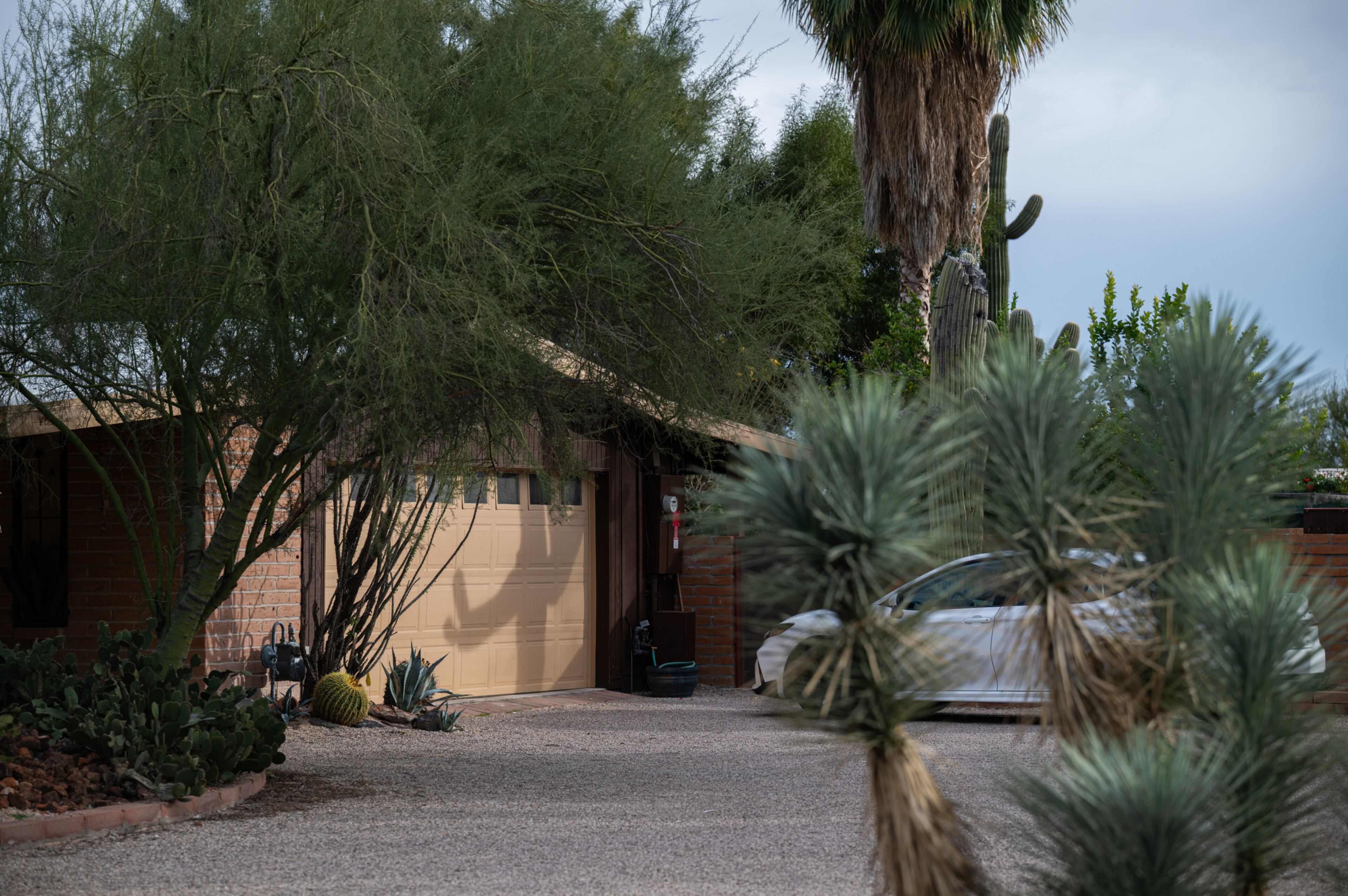
Fannin County, Ga - From the back porch of the blond pine cabin, Doreen whispered to her mother that she shouldn’t cry. But it was hard for her mother, Edna McPherson, to tell the story of visiting the clinic where she bought four babies without feeling something.
“I was seeing it with my daughters, " said McPherson as she wiped her eyes. “I wish now I had seen it with them sooner.”
The last time McPherson was at the Hicks Clinic in McCaysville it was 1966, and she was there to pick up her youngest child, Doreen, from a Georgia doctor who sold babies.
Thursday morning, McPherson of Ohio, as well as 16 adults who were born at and illegally adopted from the Hicks Clinic returned to the small, brick one-story clinic where Dr. Thomas Jugarthy Hicks practiced. For many, it was the most emotional and mind-churning event of their three-day stay in the old mining town pressed against the Tennessee border.
Debi, one of McPherson's daughters, wondered if she were touching walls her birth mother might have touched or passing through a room where she might have been. "You wonder if you're walking on the same sidewalk that she did, " Debi said.
McPherson knows the answer to that part of her daughter's fantasy. "There was no sidewalk in front of the clinic, " she said, just like there were no interstates when as many as 100 couples made 13-hour trips and longer to adopt babies for as little as $100 or as much as $1,000.
As many as 200 babies went to couples in 11 different states, including Ohio, Pennsylvania, Oregon, Illinois, New Jersey, Michigan and Indiana.
During the 1950s and 1960s, Hicks falsified the birth certificates for the babies and listed the adoptive parents in the names where the natural parents would have been in legal adoptions. Consequently, the adults who would like to have access to their medical histories or contact their birth mothers have no means of doing so.
In legal adoptions, offspring can petition the state to contact a birth mother and request her permission to release sealed records.
For one Georgia man at the reunion, that information would have proven more valuable than a reunion with his natural mother.
"I needed to know for my children, " he said. "One died at birth. One was terribly sick, and the doctor ran every known test. Finally he came to me and my wife and said, 'Give me your medical history, maybe there's something there.' My wife, she gave hers. But I told him I was adopted. He said, 'Can't you have your records pulled?' I said, 'No, sir.' And I came real close to losing my second child."
The adults have formed a group called Silent Legacy and have started a registry so adopted adults, birth mothers and parents who adopted babies can send information to a centralized place.
Thus far, 34 adopted adults and four possible birth mothers have registered. Each has submitted blood samples for DNA testing.
Two Ohio women at the reunion closely resemble one another, and they think they might be related. But genetic testing for siblings is only reliable 47 percent of the time, said Jane Blasio, who was adopted from the clinic and has created the registry. Genetic testing to determine parentage is 99.9 percent reliable. That's part of the reason Blasio hopes more birth mothers might come forward after the Hicks Clinic saga airs nationwide on "Prime Time Live" in the fall.
One of the adoptees, from Ohio, the state where at least 50 babies went, stressed that information from the registry remains confidential. Natural fathers and birth mothers could provide medical information and not be part of any reunion efforts.
Thursday afternoon, atop a remote mountain in North Georgia, members of Silent Legacy held hands and prayed over the cole slaw, barbecue and chocolate cake they would share.
"Our heavenly Father, we thank thee for the beautiful day and for being together, " said Fannin County Probate Court Judge Linda Davis, who maintains birth records for Fannin County of which McCaysville is a part. ". . . God, we hope you will make us see the right way to continue what we are doing. . . ."
Davis is bound by the law to maintain the confidentiality of any records she might have. However, she has loaned her knowledge to assist the group with establishing their registry and has secured a place for the group to meet away from the town and curious onlookers.
"I want them to feel safe, " Davis said. "If they see they are going to be exploited or put on display, people might not come forward."
None of the 16 who gathered blamed Hicks for anything. "There is no villain, " Blasio said. "The villain was just the circumstances."
McPherson said she was grateful for the family she got from the clinic. “There was a lot of love that always came out of that (clinic) door, " she said. “That was the babies.”


